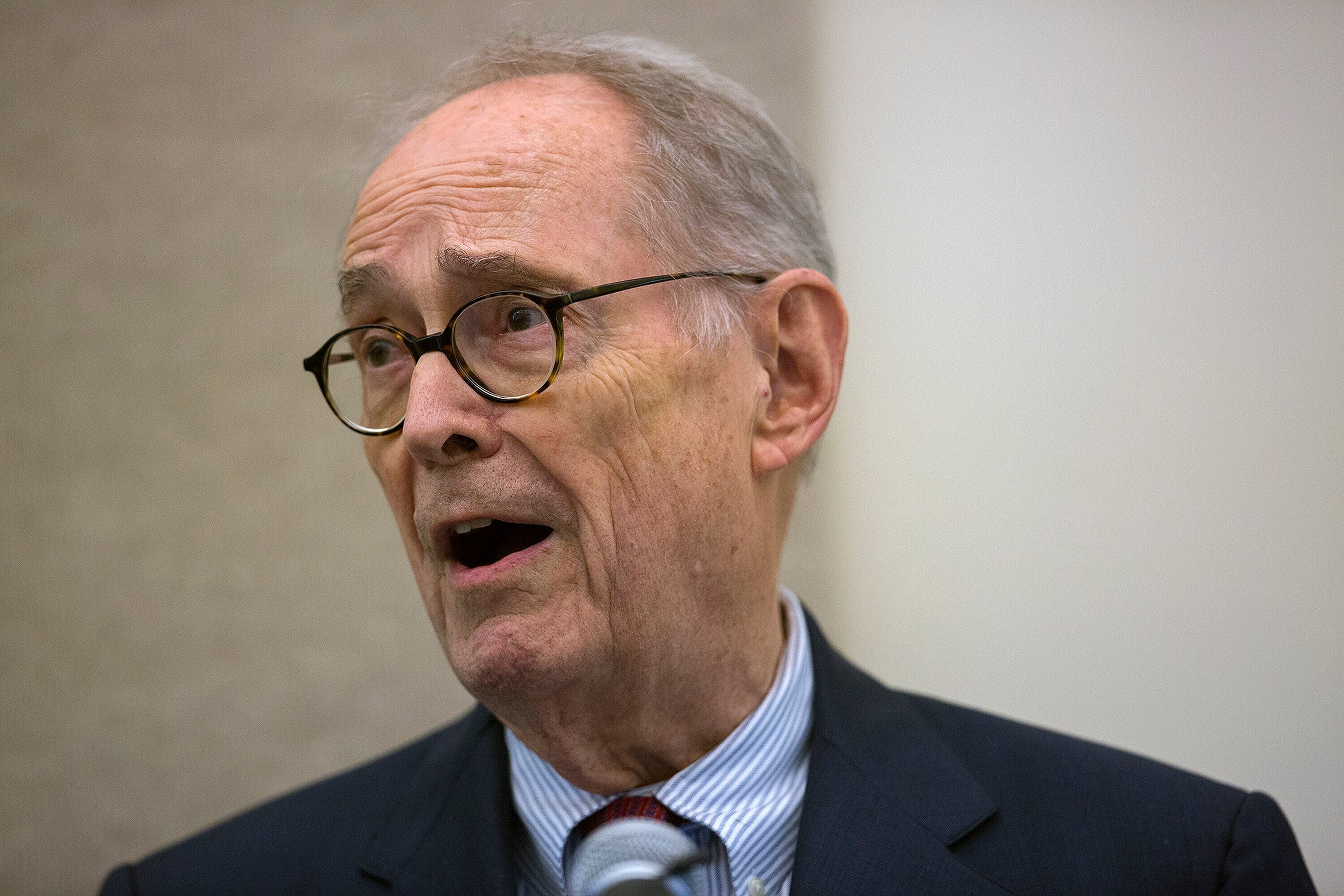Dick Thornburgh: Former US Attorney General, Pennsylvania governor during Three Mile Island crisis, dies at 88
Two-term state leader oversaw response to partial power meltdown in 1979 with a ‘necessary and steady voice of calm in the midst of crisis’

Former Pennsylvania governor and US attorney general Dick Thornburgh, who steered the Justice Department under presidents Ronald Reagan and George HW Bush and oversaw the response to America’s worst nuclear accident, has died aged 88.
The former governor passed away at a retirement home outside Pittsburgh on December 31, his office confirmed.
Mr Thornburgh served under five presidents – first as a federal prosecutor during Richard Nixon’s administration, then as an assistant attorney general under presidents Gerald Ford and Jimmy Carter - before his role leading the Department of Justice bridging the Reagan and first Bush administrations.
His Justice Department also sought the prosecution of Panamanian leader Manuel Noriega, facing drug trafficking charges after a US invasion, and oversaw the implementation of the landmark Americans with Disabilities Act, ensuring civil rights protections for people with disabilities.
“Governor Thornburgh dedicated his life to public service, and his contributions to our commonwealth and our nation will not be forgotten," Pennsylvania Governor Tom Wolf said in a statement. "All of Pennsylvania mourns the loss of one of our great public servants.”
The first Republican to serve two terms as Pennsylvania governor, Mr Thornburgh’s term in office was defined by his leadership in the wake of a partial nuclear meltdown at the Three Mile Island power station in 1979, just weeks after he entered office.
Governor Wolf said Mr Thornburgh was “a necessary and steady voice of calm in the midst of crisis”.
He ordered the precautionary evacuation of pregnant women and young children from the area, removing roughly 140,000 people residents from risk of harm, and sought to shut down false reports, rumours and misinformation. The incident also compelled stricter federal regulation at nuclear power plants.
Remembering the events of the incident on its 35th anniversary in 2014, Mr Thornburgh said a person “cannot appreciate what the effect of a panic is until you have been in one of these situations.”
The arrival of then-president Carter to the scene, at Mr Thornburgh’s request, helped allay public fears, sending a message that “if it was safe … for the governor and president of the United States, then it was safe enough for anyone.”
Mr Thornburgh “was an unequaled public servant who devoted his life to caring for the people of our commonwealth and our nation,” Governor Wolf said.
Near the end of his presidency, then-president Reagan tapped the governor to succeed Attorney General Edwin Meese, who resigned amid scandal and allegations of misconduct over government contracts.
Mr Thornburgh’s career in criminal justice targeted organised crime, white collar corruption and securities and exchange fraud.
He made an unsuccessful run for Senate after leaving the Bush administration in 1991, then joined the United Nations to fight waste and corruption. However he left after one year saying that the body was “totally lacking in effective means to deal with waste, fraud and abuse by staff members”.
He also joined investigations into corporate malfeasance, including a Justice Department probe into the 2002 WorldCom scandal, one of the largest accounting fraud cases in US history.
Subscribe to Independent Premium to bookmark this article
Want to bookmark your favourite articles and stories to read or reference later? Start your Independent Premium subscription today.

Join our commenting forum
Join thought-provoking conversations, follow other Independent readers and see their replies